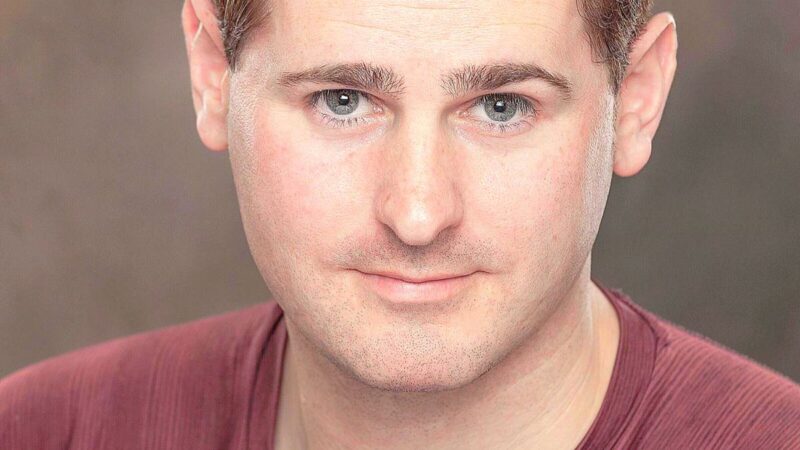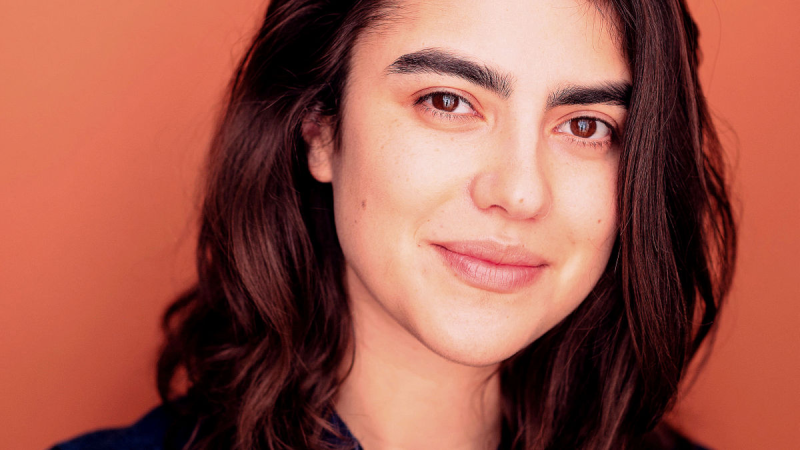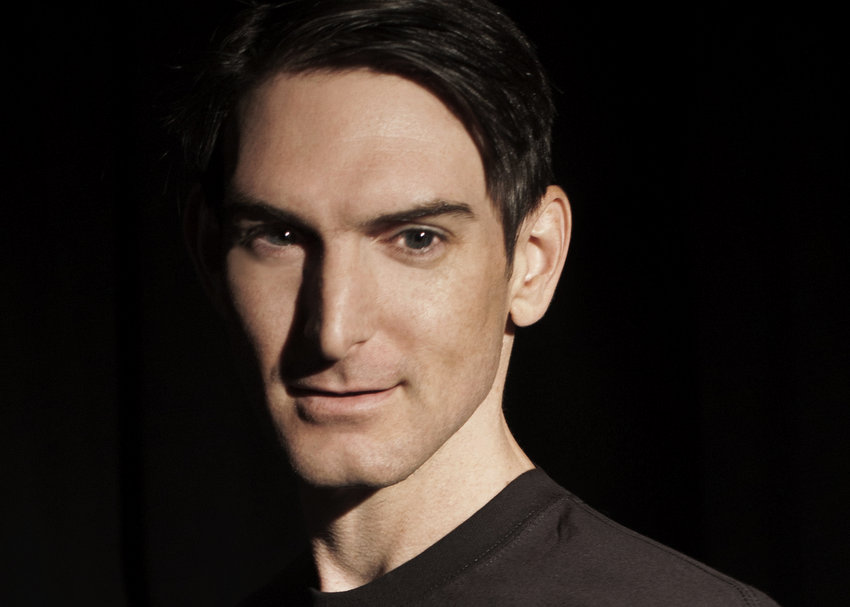
Tim Morrill is a film director and cinematographer. Tim is from San Francisco the Bay Area where he started out as an actor in Theater. His first love was films so he began to write, act and produce films with local filmmakers. He produced an ambitious feature film “The Lonesome” on a shoe-string budget and took on a character role.
After generating a handful of projects including his short film “Cleansing the Palate” (A case-study) about the effects of the 2008 recession, he went on to co-found a production company, Full 88, where he directed and produced short films for the benefit of the homeless in Sacramento.
indieactivity : You’re an auteur. Describe your style of filmmaking?
Tim Morrill : That’s a good question. I think I’m still developing my style and I hope that it evolves over time as I direct more films. I’d like to think that I’m more a collaborator than I am an auteur, even though I have a visual aesthetic that I tend to gravitate toward. I try as much as I can to allow the people that I work with to show me something that I didn’t think of before.
If there is any constant in my style it’s the influence of classic movies of the Golden Age of Hollywood. I tend to keep my camera locked down to allow the actors to play within the scene and only move the camera when it’s necessary. Over time I’ve grown more comfortable with moving the camera but I have a fear that my films will be nothing but camera moves without any real substance.
My style is also influenced by theater, where I got my start as an actor. If I have the time on set I love to allow the actors to play a scene and allow them to find moments or to play a scene in a different way.
indieactivity : You’re an writer, cinematographer and director; so you work on the entire film process back to back. You never stop working? How do you combine these hectic roles? What has been your experience?
Tim Morrill : I’ve learned to wear many hats from being in a film program that encouraged an overall film education instead of a focused track. I never intended to be a writer but out of necessity I had to write my senior thesis film and I learned from that experience that I was able to do it. From there I felt encouraged to develop more ideas and one of them became “Look Into The Fire”.
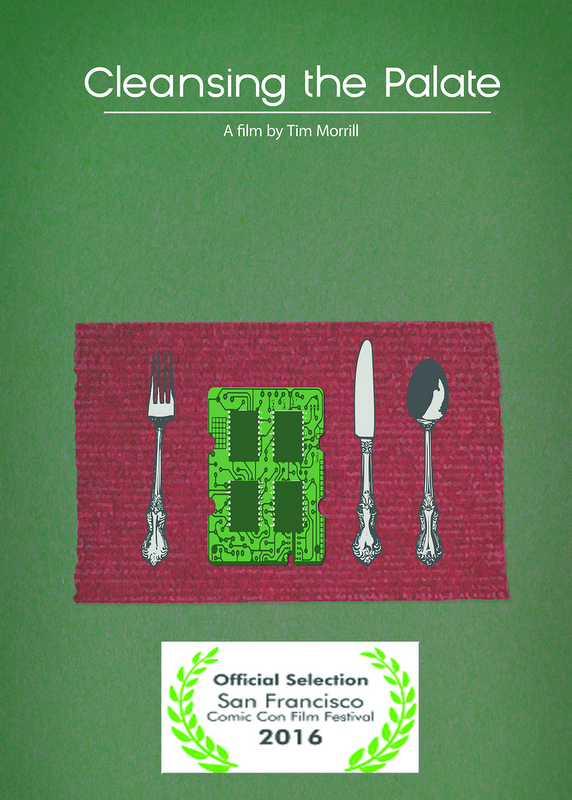
I’ve only recently been focusing on feature films so I have some productive down time where I can develop more films. It’s really the only part of the process that I could do by myself on my own terms and that has been the reality of being an independent filmmaker. So I guess I never really stop working and I really like that fact. It’s those days when I have nothing to work on that I start to worry. In my experience, combining the roles can be a challenge, especially being a writer/director.
There is the way that I wrote the script and then there is the reality of what it’s going to be. That can be a difficult idea to juggle especially in the midst of a shoot day. I’ve lived with the film in my head for a long time and it’s time to shoot it and it’s not what I saw in my head because of any number of reasons. The great part is when the reality is a lot better than what I wrote and that has happened a few times. As a cinematographer, it’s easier to focus on that role and not have to worry about the writing or directing.
indieactivity : If you have a work process, you can share it with young filmmakers?
Tim Morrill : I feel like I’m still developing my work process, but here’s what I understand about it so far. In terms of writing, I try to write treatments before I dive in to write the script. When I’m developing the story I like to work out the story first. It’s been a discipline that I’ve found useful after a couple failed attempts at starting a script before finishing the treatment and then I’m not being able to finish the script because I didn’t finish the treatment and I don’t know where to take the story.
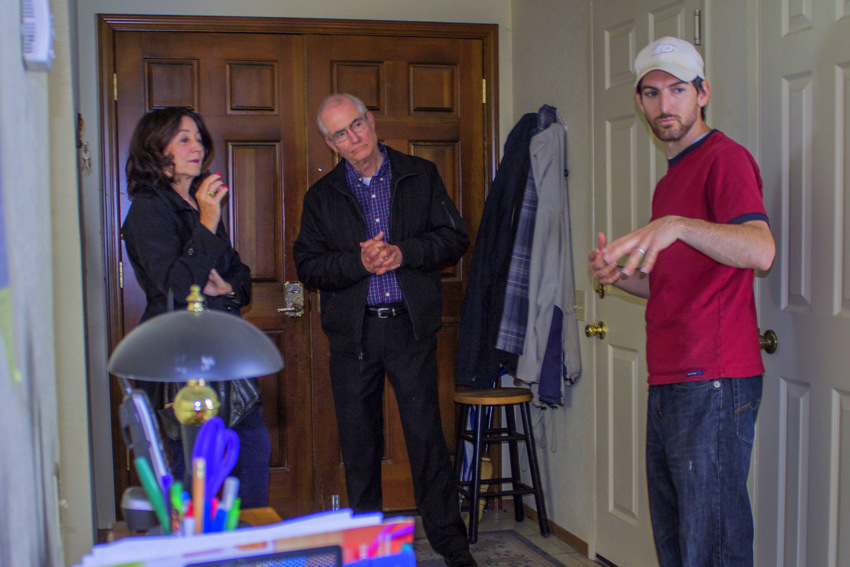
It can be a double-edged sword because I usually find an opportunity to deviate from my treatment and then it sometimes makes the rest of my treatment obsolete. From the treatment I will write through an entire rough draft without going back and editing it. After finishing that part, I will start from page one and try to play the film in my head as I’m reading it. That allows for more visual and character moments to come to me in order to break up usually huge scenes of dialogue. I just keep doing that until the script reads smoothly and the logic of the story is intact.
In terms of directing, I try to be as prepared as possible, but allowing for that planning to be thrown out the window when something will no doubt go wrong (no matter which step of the process). Since my experience has only been with scripts that I’ve written I’ve started with finding a producer who wants to make the film and who can objectively look at what I’ve written. I like to work closely with the producer throughout pre-production, in every aspect, to get the film ready for production days.
I’ll also work with the AD to break down the script and schedule the days. Once in production, I focus completely on the performances and getting the film shot. Then in post-production I will switch back into taking on some producing responsibilities if I need to and just focus on cutting the film and getting it finished. If there is anything that I’ve learned about the process is that I should expect the film to change over the course of filming and editing it. It will never be the script I wrote and that’s sometimes the best part about the process.In terms of cinematography, I haven’t had as much experience as a cinematographer as I have being a writer/director.
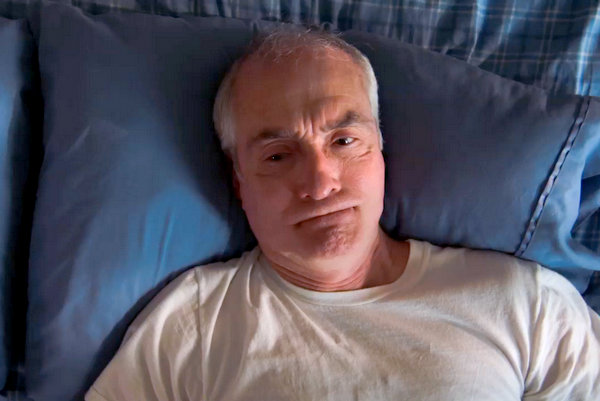
I like to sit down with the director and talk through what kind of look they are going for and to get excited about how to visualize the story. From there I will find examples of what I think they are looking for and just have a continual discussion about the film’s themes and the story arc. I start to think about what lenses to use and the type of lighting that will be needed and plan accordingly. As often as I can I try to find interesting angles, while on set, because film is one of those mediums that urges us to look at things differently.
As a director, I appreciate a shot that tells the story, and is interesting at the same time. After production I usually hand over the footage and let the editor put it together.
indieactivity : You have worked on Look into the Fire (2018), Cleansing the Palate (2013). After all these films what can you say making films is about? Should filmmakers start early? Is this based on talent or skill? Why do film, with all the investment loss, gain and pain? Why do it?
Tim Morrill : Good question. Making films is about bringing good people in to create something that everyone can be excited about and bringing that excitement to the audience and sharing it with them. I feel it is a very inclusive process that can’t be accomplished without everyone wanting to be a part of it (and that includes the audience).
Filmmakers should always start early. Don’t let anyone give you permission to do it. That’s a mistake that I had to get over with myself. I thought, “Who am I to make a film? I haven’t earned it.” I think being a filmmaker requires more skill than talent to do and to do well. Some very talented people never make it because they simply don’t back up that talent with a work ethic. Being a filmmaker is a lifestyle that insists on practice and failure, but it can be worth it if you don’t stop developing those skills.
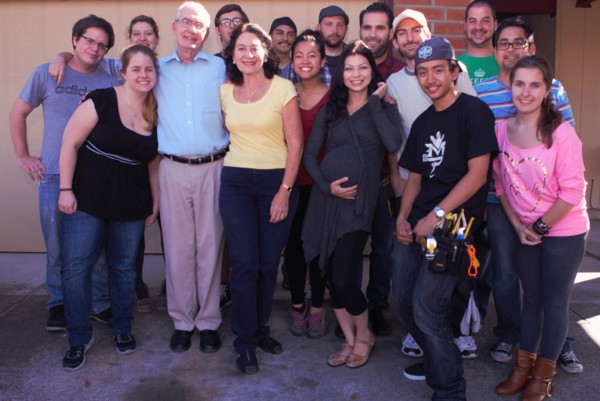
Even with all the failure I’m still doing it and there’s nothing better I’d rather do with my short time on earth than make films. I’ve wanted to be a part of the film industry since I was a kid and that has never changed. I still get excited when someone says, “I have an idea for a film.” I do film because I’m still excited about the idea of making something that could possibly entertain someone the way that films have entertained me. I wish film was loved for what it achieves instead of being torn down for what it lacks.
indieactivity : How does your work on “Cleansing the Palate” help you on, Look into the Fire (2018)? Does your previous work experience feedback into a future project? How does it?
Tim Morrill : The work on “Cleansing the Palate” definitely helped me with the production of “Look Into The Fire” by preparing me for the day-to-day physical and mental demands that a film requires of a director. A lot of what I did for “Cleansing the Palate” is what I did on “Look Into The Fire” but on a bigger scale.
When filming “Cleansing the Palate” I quickly learned what it felt like to go five consecutive days of filming and how to keep up my energy, even when I felt like I didn’t have any more energy left. The shooting schedule for “Look Into The Fire” was like that for three weeks straight (15 days total) and was like I was shooting a short every week with a couple days to kind of recuperate, but really was prep for the next block of shoot days.
I learned a lot about how to deal with setbacks on “Cleansing the Palate” and how to adjust to a sudden location dropping out last minute or any number of issues that would pop up out of nowhere.
indieactivity : Let’s take “Cleansing the Palate (2013)”, how did you prepare for the project: the cast, marketing, audience, finance, and the demands of the production?
Tim Morrill : I prepared for the production of “Cleansing the Palate” by having lots and lots of meetings with the producer almost every week leading up to our shoot dates to make sure we were on track. Part of that was running a Kickstarter campaign that didn’t raise the amount we were asking for and so we had to pay out-of-pocket and rely on donations from friends and family to at least pay for the bare minimum of what we needed to make the film.
I story-boarded the entire film and worked out a shot list with the Dp which mostly got thrown out when we found that some shots just didn’t work and had to find alternatives or that the location I had planned the shots for fell through and we had to make it up on the day. I worked with the AD to make sure that we could make our days with the shots I had planned out to try to make sure our days went smoothly, which most of them were slightly on schedule.
I did one read-thru and rehearsal with the four lead actors and tried to make sure everyone was comfortable with each other. I was working with professionals that didn’t require much from me when it came down to it (I’ve been extremely lucky to work with actors who are prepared when they show up to set) and they all had instant chemistry as if they were part of a family.
For me, I could barely prepare for the demands of the production because I had never directed a film like this up until then and so I relied on good ‘ol coffee to get me through.
indieactivity : When you shot “Look into the Fire (2018)”, why did you choose that type of project? What risks did you take?
Tim Morrill : When I shot “Look Into The Fire” I had not expected that it would be made when it was. I was intent on doing something with the script (either seeing if I could sell it or finding a director), but after some time I made the decision that I wanted to direct it. I really didn’t know when this was going to happen and had expected that I would direct a few other movies before anyone would give me the money to direct the film.
At the time I was working with Writer/Director Eduardo Castrillo on his feature films and he liked the script. But it wasn’t until I got it in the hands of Actress/Producer/Director Jackie Dallas that the wheels started to move on the film and that’s really how it was chosen as the next project I would do. It was a huge risk because I had never taken on a film so massive before and there was a lot more on the line. The story idea, in itself was a bit weird, but the fact that so many people believed in it was reassuring.
Just making the decision to direct it at all was really the biggest risk because I could have easily run away from the opportunity but I think I’m better off for making that decision.
indieactiivty : When you shot “Look into the Fire (2018)”, why did you choose that type of project? What risks did you take?
Tim Morrill : When I shot “Look Into The Fire” I had not expected that it would be made when it was. I was intent on doing something with the script (either seeing if I could sell it or finding a director), but after some time I made the decision that I wanted to direct it. I really didn’t know when this was going to happen and had expected that I would direct a few other movies before anyone would give me the money to direct the film.
At the time I was working with Writer/Director Eduardo Castrillo on his feature films and he liked the script. But it wasn’t until I got it in the hands of Actress/Producer/Director Jackie Dallas that the wheels started to move on the film and that’s really how it was chosen as the next project I would do. It was a huge risk because I had never taken on a film so massive before and there was a lot more on the line. The story idea, in itself was a bit weird, but the fact that so many people believed in it was reassuring.
Just making the decision to direct it at all was really the biggest risk because I could have easily run away from the opportunity but I think I’m better off for making that decision.
indieactivity : Are you going to become an investor on indie films in the future?
Tim Morrill : I think there is such a great community, especially in the San Francisco Bay Area, for indie films and some of the best people I’ve ever met have been on indie sets. I want to support that and to keep the community thriving.
indieactivity : Do you influence the story of a screenplay?
Tim Morrill : I can’t help but influence the story of a screenplay since I’m usually the one writing them. I hadn’t set out to write my own movies but it ended up just being a necessity and there were some interesting ideas that I wanted to explore. I had also realized that sometimes the only person to lay the groundwork for the story is me because of a sensibility that I can bring to the story. If I end up directing a script written by someone else I think I would have some influence over the screenplay because I’ll have some of my own ideas that might make the piece more interesting, but it really depends. A script could be really good and I wouldn’t see a need to do anything with it except interpret it for the screen.
indieactivity : How do you choose a Cinematographer?
Tim Morrill : The way that I’ve chosen my cinematographers hasn’t really been in any official way. I have either picked them because of word of mouth from colleagues and I checked out their work or by bringing in cinematographer friends to shoot for me, who had been available. I have managed to work with a different cinematographer on each of my films and that has been a great decision and a challenging decision as well. It’s a great decision because I get to work with many different cinematographers, but it’s a challenging decision because I am building a brand new working relationship that is going to develop over the course of the film and we don’t know each other’s sensibilities yet.
indieactivity : What do you look out for in an actors?
Tim Morrill : I started out as an actor and so I look for actors who are serious about the craft and are prepared. I have been very lucky to work with actors who took the work seriously and were prompt to set and knew their lines and just made my job as a director somewhat easy. An actor that has an overall positive attitude doesn’t hurt either and can make the set fun because they are having fun, even when it’s the middle of the night and we all want to go home.
indieactivity : What basic principle drives your choice of an producer, production designer etc.?
Tim Morrill : The basic principle that drives my choice of a producer, production designer, and other key roles is that I can see that they get what I’m going for with the film. It’s a small basic principle but I have found that if someone doesn’t quite get what I’m trying to accomplish with the film, that it’s either that I didn’t do a good job of explaining it or that their sensibility is different than mine and in essence the sensibility of the film. I often look for people who can add to the film without drastically changing its core tone. I’ve also been lucky to have producers who saw what I was trying to do and helped mold the script and the production to fit what was on the page. I’ve heard of many horror stories about producers or other key people who have tried to change the script and I haven’t had to deal with that.
indieactivity : What advice do you give filmmakers reading this interview?
Tim Morrill : The advice that I can give to filmmakers reading this interview is that it takes a long time to make a film, especially a feature on an indie scale. I had thought that I was going to have a complete film in a year and I did not foresee many of the hang ups that I would encounter (especially in Post Production). I’ve learned that you can’t take any of that personally and just keep going. People will drop off the crew and actors may not show up but the only constant has to be you and if you can show that then you will gain a core group that will go through hell and back for you.
indieactivity : What is NEXT for you?
Tim Morrill : What’s next for me is that I am currently developing a supernatural rom-com feature film tentatively titled, “Serendipity” through Full 88 Films, a production company I co-founded, and I’ve written (and might direct) a comedy feature film tentatively titled “Dry Sunrise” that is ready to go into production through a partnership with Uncia Films.
Follow Tim Morrill on Social Media
Website
IMDb
Twitter
LinkedIn
Vimeo

